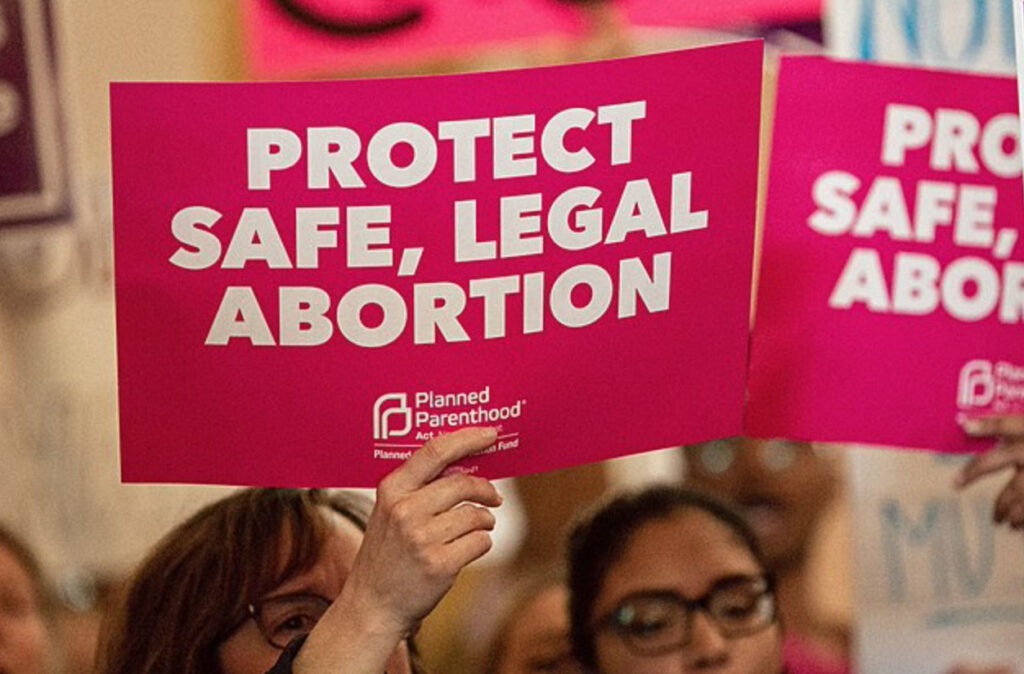LOS ANGELES — New legislation in Texas surrounding abortion access is sending shock waves around the world. The bill bans abortions after six weeks, before most women even know they are pregnant, circumventing constitutional provisions of the right to abortion by empowering private citizens to sue any party to an abortion in civil courts.
Women in Texas, especially low-income and minority women at higher risk for pregnancy-related health complications, who are often less able to find abortion access beyond state borders, will immediately feel the effects of the new legislation.
Although it’s not the first state to issue legislation challenging the constitutional right to abortion, Texas is the first state to successfully implement legislation to bypass Roe v. Wade. Other bills, including the Alabama Human Life Protection Act and other “heartbeat bills” across the southern United States, have attempted to pave a route around the dictates of Roe v. Wade. However, they have all failed to go into effect.
Like other pieces of anti-abortion legislation, the SB8, also known as the Texas Heartbeat Act, makes no attempt to conceal its anti-constitutionality. The law prohibits abortion after any sign of cardiac activity, which develops only a few weeks into pregnancy, and makes no exemptions for rape or incest. Although the bill leaves protocol for health-related abortions unspecified, clinics will avoid risking any major financial penalties and terminate most abortion services.
The Texas ruling stands apart from preceding anti-abortion legislation in regards to who it enlists to carry the bill around judicial review.
Legislators and lobbyists designed previous “heartbeat bills” with the intention to push the Supreme Court to reevaluate and potentially relax the decision of Roe v. Wade. In 2019, Alabama Governor Kay Ivey defended her state’s bill, which compared abortion to the Holocaust, as a tool to prod the Supreme Court to revisit the landmark 1973 decision. However, federal courts struck down Alabama’s endeavor to alter the Roe v. Wade decision before it could land before an increasingly conservative-leaning Supreme Court.
Rather than constructing the bill to ensure judicial reevaluation, legislators in Texas crafted their bill to frustrate any legal challenges. The law empowers private citizens to enforce the ban instead of law enforcement officials, diffusing accountability for violating the constitutional provision. The bill permits anyone, apart from Texas government employees, to sue anyone involved in the abortion process, from the doctor performing the operation to the Uber driver shuttling a patient to the clinic, without accruing legal fees and potentially earning $10,000 if they win.
Authorizing private citizens to enforce the law confounds who bears the legal responsibility for violating the constitution and effectively roadblocks prosecutors from building their case. Prosecutors cannot sue every private citizen who pursues legal action against anyone that “aids and abets” an abortion, so building a case against the bill remains impossible until they identify the defendant.
The controversy surrounding the bill is not concerned with its constitutionality. The Texas bill is unequivocally unconstitutional. Debate centers instead on how to get the bill into the courtroom and who to file charges against.
On Sept. 1, the Supreme Court refused to block the bill. In a 5 to 4 vote, Chief Justice John Roberts again sided with the dissenting liberal opinion, arguing the bill not only violates precedent but also models how states can manipulate legislation to insulate themselves from constitutional oversight. The majority opinion did not rule on the bill’s constitutionality, only on the nature of the challenge to the bill.
Ten days after SB8 went into effect, the Justice Department filed a lawsuit on behalf of women in Texas to block the bill, alleging that it violates the Constitution’s Supremacy Clause and the 14th Amendment’s guarantee of due process, which is the constitutional foundation for the Roe v. Wade decision.
A federal judge scheduled a hearing on Oct. 1 to consider temporarily blocking the ban on abortion until the Justice Department’s case can be reviewed. The law will have been effectually prohibiting abortion for a month at the time of that hearing.
In the Justice Department filing against the law, Attorney General Merrick Garland declared the law blatantly unconstitutional in both intent and effect. He also expressed concerns about the precedent established in this legislation.
In a Sept. 9 news conference, Garland said that, “this kind of scheme to nullify the Constitution of the United States is one that all Americans, whatever their politics or party, should fear.”
Many onlookers on both sides of the aisle have concerns about the leeway this precedent could grant to states to stray from the Constitution, ranging from hypotheticals such as “[c]ould California allow private citizens to sue individuals for hate speech?” Or “New York deputizes private lawsuits against gun owners?” to more immediate concerns about the havoc the law could wreak on the nation’s polarized political landscape.
While legal battles unfold between state and federal leadership, women in Texas remain largely incapable of obtaining an abortion.
Furthermore, a country that touts constitutional ideals and individual liberties might be concerned about the optics of constitutional transgressions on an international stage. While Mexico, its southern neighbor, decriminalizes abortion and increases reproductive rights, the United States becomes increasingly entangled in a domestic struggle over the essence of individual freedom.
As the Biden administration and Texas conservative leadership debate womens’ access to abortion, the world is watching.







